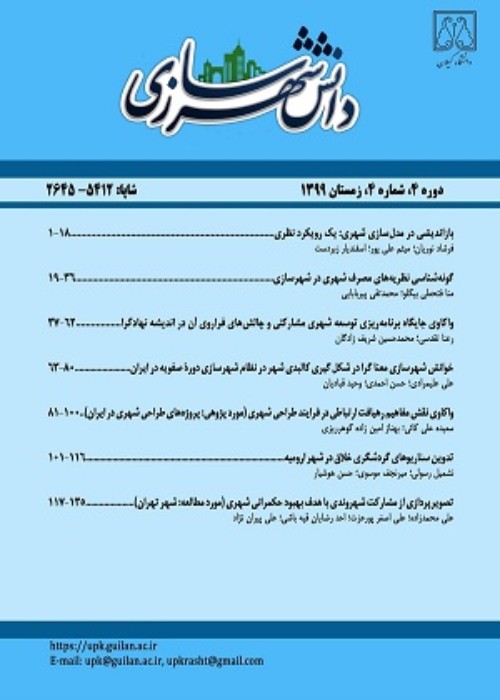Explaining the Cognitive-Cultural Approach in Comparison with Developmental Approaches to Meaning in Urbanism
Today, the meaning of environment is one of the most important issues in urbanism and contemporary schools of thought have always sought to theorize the "nature of meaning and the process of its development" in urban spaces.Despite their strengths, they seem to have shortcomings due to the lack of capacity to benefit from the initiatives of other scientific fields and the single-level view of meaning. Due to the interdisciplinary nature of urbanism, it seems necessary to use related sciences to the cognitive and perceptual structures of the individual to explain the process of meaning development in urban.
In response to the question, " What is the cognitive-cultural process of meaning formation in urban space and what are its achievements in comparison with other developmental approaches to meaning?", the purpose of this paper is to generalize the application of cognitive science concepts related to cognition of human and environment to the field of environmental studies, including urbanism and reduce the gap in the interdisciplinary theoretical studies of these two fields.
The research method in this article is a comparative- analytical method that is done by explaining the position of cognitive-cultural approach in comparison with post-positivist and post-structuralist approaches in the field of urban studies.
The cognitive-cultural approach is distinguished from post-positivist and poststructuralist approaches in terms of epistemology and factors of meaning development in urban spaces. Epistemologically, in the cognitive-cultural approach, meaning is reproduced simultaneously at two pervasive levels with cultural mentality and at a specific level with cultural practices. Cognitive-cultural affordances of urban space, cognitive-cultural experience of the individual from urban space and how to be available/accessible in a particular situation are the factors of meaning development in the cognitive-cultural approach. In other words, this approach examines the traces of culture both in the environment and in humans.
The proposed cognitive-cultural approach of the research with a multilevel and situational view of meaning, covers the shortcomings of previous approaches in urban studies such as a single-level view of meaning and introduces urbanism as situational cultural knowledge.
- حق عضویت دریافتی صرف حمایت از نشریات عضو و نگهداری، تکمیل و توسعه مگیران میشود.
- پرداخت حق اشتراک و دانلود مقالات اجازه بازنشر آن در سایر رسانههای چاپی و دیجیتال را به کاربر نمیدهد.




